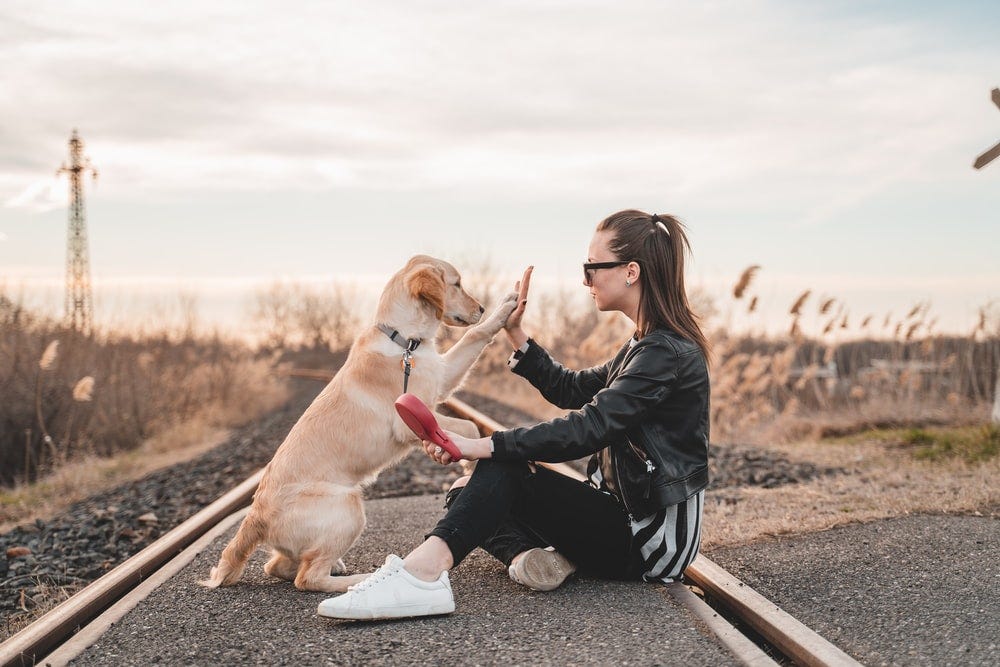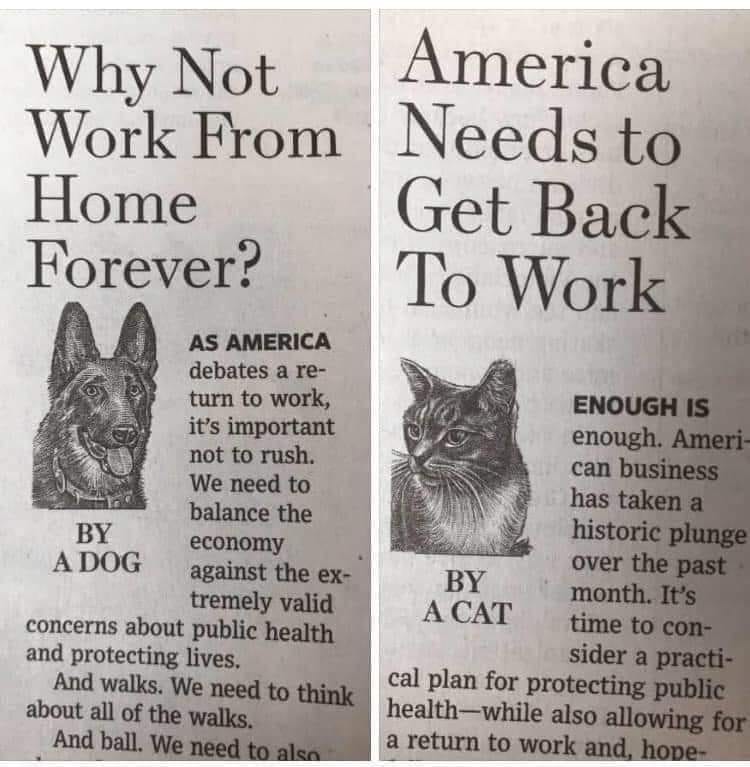
It may be because I’m in the constant presence (or should I say ‘glare’) of my mother’s new pet cat but I’m noticing a lot of animals around me. Never before has my rooftop tea time with friends involved a puppy biting our feet, or a significant portion of our conversation taken up by pet stories. For that matter, never before has my sister gone out for a doggo meet-up.
The trend doesn’t seem to be confined to Karachi. The global pet market was valued at $232.5 billion in 2021 and is expected to reach $332.9 billion by the year 2026. Be it the pandemic-induced isolation or a larger trend of choosing pets over human offsprings, our pet pals are sitting up and it may be a good idea to pay them some attention.
This week in The Global Tiller, we take a look at how the pandemic has impacted the pet industry and, more specifically, our pets. What are some challenges facing pet owners as life slowly returns to 'normal'? Does pet ownership mean something different to you than it did to your parents?
The global pet market is dominated by the United States and Canada - pet industry sales in the US exceeded $100 billion for the first time ever in 2020. Despite their share, the pet market has been on the rise in other parts of the world as well. Last year in Japan, there were only 14.9 million children aged 14 or younger as compared to 20 million cats and dogs registered across the country and an additional 60,000 pets joined households during the pandemic. An increase in disposable income in China and India has also led to a growing demands for pets among their huge populations.
And how did our furry friends react? Well, it depends. There were some dogs who wagged their tails so hard they sprained them but also those who took on the anxiety and stress of their humans. And then there were cats who developed stress-induced UTIs from not being left alone enough. The pandemic caused weird behaviours among cats and dogs alike, mostly from an abrupt change in what they had learned to be normal routines but a little bit also from weird social media trends. Now that humans will be making their way back to work, pets owners should brace themselves for a new round of separation anxiety.
A large number of people who were able to work from home during the pandemic are reluctant to go back to the office. A big reason for this is the pets back home that they don’t want to leave behind. Pet owners reported having pets nearby helped them be more productive at work and cope better with work-related stress. Will we see a rising trend of pets in the workplace? Or will humans prioritise their non-human companions and stay home to work? Worse still, will most of the people who adopted pets during the pandemic return them to shelters?
The answers to these questions depend, a large part, on the fact that we have a different relationship with pets as compared to our parents and grandparents. From merely being used as guards or for pest control, cats and dogs are now considered full members of the family whose pet insurance is a legitimate negotiation point at work and who get invited to weddings.
Be it for now, or for the future, this industry is growing at a steady pace and, while parents of humans may scoff, owning a pet carries immense responsibility. Can we trust ourselves to take care of another species when so many of us are incapable of treating other human beings right? Do we dare dig deep into our need to "own" another species to begin with? Is there really a 'trace of tyranny in this institution of cuddliness'? What spaces are we creating for animals around us as we deal with climate change?
We’d love to know how your furry friend kept you company during the pandemic.
Until next week, take care!
Hira - Editor - The Global Tiller
If you’d like to read our previous issues, you can access our archives here.
Wondering how your pets are dealing with your constant presence? Here’s what they have to say:
What’s the role of SMEs in the Pacific? How women can be key in the growth of entrepreneurship in the region? How to protect intellectual property in the Pacific?
Annette, an entrepreneur from PNG and an inspiration to many, answers all these questions for us. She rethinks traditional patterns and craft to make them a sustainable business while taking on the big guns to stop them from taking advantage of Pacific communities. All this and more in the new episode of Pacific Toks!
…and now what?
Who am I? This question has been haunting human minds since the time our species could think and ask. We do seem to be quite a unique thing on this planet. As far as we know, we’re the only one sufficiently self-aware to ask this question and gain some kind of control over our lives and our place in the natural order.
Man asked this question to make peace with themselves while facing the immensity of life and the universe, even if we managed to make war in the pursuit of answering this question. Along the way, we decided that we are in a position to impose our will over other living beings on this planet and our scriptures endorsed us: “Let us make man in our image, after our likeness. And let them have dominion over the fish of the sea and over the birds of the heavens and over the livestock and over all the earth and over every creeping thing that creeps on the earth.” Basically, let’s do whatever we want with animals, they’re here just for us. Didn’t Descartes describe animals as mere automatons? A view that somehow placed humans above nature. Quite egotistic isn’t it?
Now, science helps us open the door to a new way of answering the question: who am I? It's actually not about "I" but "we". And this had been taught to us not by our own nature, not even through a more grandiose scheme of things. Science has actually rediscovered who we are by observing others. Which others? Those who may actually be sitting next to you. They’re fluffy, funny and sometimes incorrectly considered not that smart compared to other “natural” animals.

32,000 years. That’s how long we’ve collaborated with dogs. 5,000 years for horses and cats (maybe that explains why they barely tolerate our presence). For a long time, we thought we have imposed our will on them, however, recent studies by researcher Brian Hare have shown that it has been, and still is, a complex relationship that we have built with the animals we live with. From pets to cattle, we have managed to interact with each other beyond the barrier of culture, language, biology. A remarkable example of peaceful and productive collaboration.
The new theory sustains the idea of self-domestication: wolves managed to “become” friendly enough with us so we would accept them and, eventually, find their presence useful for hunting and defense. From wolves to dogs, centuries of self-domestication and collaboration have led to the point where I had a giant lazy Great Dane on my couch, or someone else had a Poodle dressed as a doll. Ridiculous some would say, comparing the grandiosity of wolves with these ugly Chihuahuas. It’s not just us, it’s them too and overall an evolutionary choice that made us all aware of our best interest to be and work together. A rediscovered story of trust, understanding, intelligence and good neighbouring.
Scientists now hint to the fact that homo sapiens became so successful because of their own self-domestication abilities and their extremely efficient collaboration skills. For ages, humans have fought among themselves while building an amazing connection with other species. Blinded by our errs and our sense of a binary superiority, we have lost track of what contributed to our success: others. Other humans, other species.
There’s still a lot to unfold from those theories. And we are at the very beginning of a new era in our evolution: one that will reconsider the barriers between us and other animals. It’s still unclear, it’s messy and raises many ethical questions. But that’s what change is about.
Meanwhile, probably near you, there’s a cat looking at you in a condescending way, or a dog wagging its tail at you like you’re a superhero, all asking you one question: what if you, human, you were just about to rediscover who you truly are: an amazing collaborative being that knows how to communicate efficiently and to work peacefully with others.
So if you have pets, and think about them as a key member of the family, you’re not silly, you’re just truly human!
Philippe - Founder - Pacific Ventury




